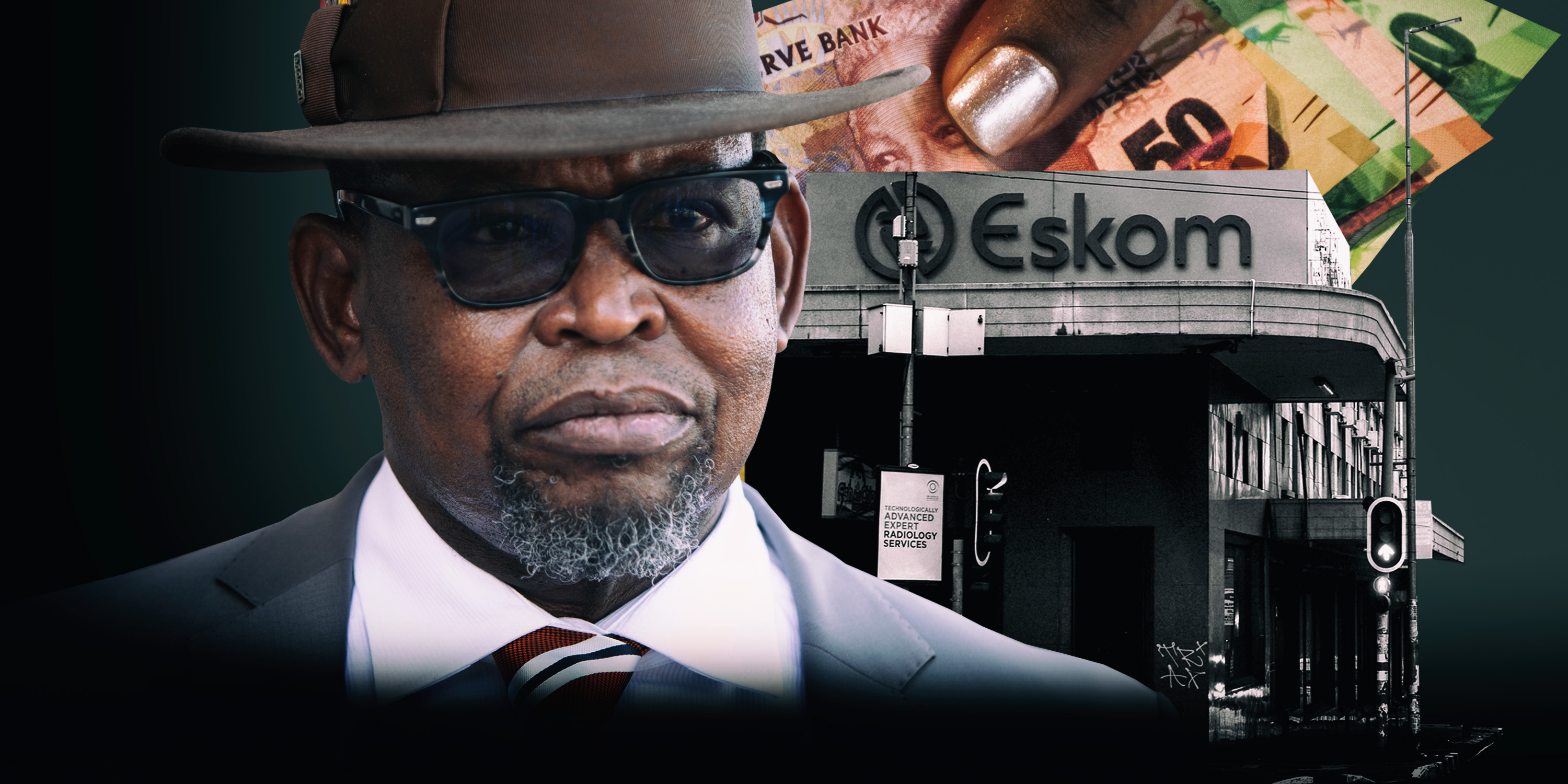Early last month, Eskom warned that if municipal debt was not addressed by 2028, it would be forced to knock at the National Treasury’s door for another bailout.
However, the National Treasury is firmly sticking to its stance of “no more bailouts”. The Budget tabled by Finance Minister Enoch Godongwana claws back R20-billion from Eskom’s R70-billion debt takeover, restructuring it into two advances amounting to R50-billion – R40 billion in 2025/26 and R10-billion in 2028/29.
“Eskom is now in a much better financial position than in 2023 when the debt relief was originally announced. As a result of these improvements, we have decided to simplify the final phase of the debt relief package,” Godongwana told Parliament.
Eskom’s debt restructuring is a response to its marginal financial improvements, but Treasury notes that the entity remains a major fiscal risk. The R50-billion allocation will go towards servicing debt redemptions rather than operational improvements.
“Eskom is making progress on its recovery plan, although its finances remain weak and operational performance requires significant improvement,” the minister said.
Treasury’s explicit decision to move away from direct bailouts is an indicator that Eskom must improve revenue collection, particularly from municipalities, which collectively owe more than R75-billion in unpaid bills.
Transnet still deep in the red
Transnet remains hampered by high debt levels, declining freight volumes and ongoing operational inefficiencies, recording a net loss of R7.3-billion in 2023/24, up from R5.1-billion the previous year. Its debt servicing costs have surged to R14.3-billion.
However, Godongwana did not touch on Transnet’s financial distress in his speech. Instead, he focused on public sector partnerships (PSPs) as a key solution to Transnet’s recovery, noting that the Department of Transport and Transnet would engage the market on projects in the following areas:
- The ore, chrome, coal and manganese freight rail lines.
- The expansion and automation of the ferrochrome and magnetite terminal at the Port of Richards Bay.
- The container and automotive sectors, including the designation of South Africa’s container ports as a regional transshipment hub.
- The establishment of an independent rolling stock leasing company.
“Should Transnet require gap funding for its PSP projects, the Budget Facility for Infrastructure (BFI) will consider these after proper packaging and financial structuring. Additional guarantees may also be considered to refinance the entity’s maturing debt as well as its capital investment programme,” said Godongwana.
Treasury’s emphasis on private sector participation rather than direct state intervention underscores its broader shift in SOE financial management. However, Transnet’s financial health remains fragile. Rail volumes have dropped from 226.3 million tonnes in 2017/18 to 151.7 million tonnes in 2023/24, a collapse that has had ripple effects across the mining and export industries.
Treasury’s additional mechanism
Despite its stance against further bailouts, Treasury has not entirely withdrawn financial support for SOEs. Instead, it is shifting towards structured financial mechanisms, including:
- Credit guarantees for capital investments, aimed at reducing direct fiscal exposure.
- On-lending facilities, allowing SOEs to access funds at lower rates.
- Grant funding in strategic cases, particularly for infrastructure projects.
State-owned companies and major public entities continue to pose a large risk to the fiscal position, requiring strict oversight. Treasury is focusing on improving governance and transparency within the government guarantee framework, ensuring that only financially viable projects receive support.
Development finance institutions
Development finance institutions (DFIs) continue to play a pivotal role in supporting infrastructure and economic growth initiatives. Treasury has emphasised leveraging DFIs to reduce the state’s direct financial exposure to failing SOEs. This approach is particularly evident in public-private partnerships, where DFIs help provide funding without the government taking on unsustainable debt.
Social security funds still critical
Social security funds remain critical for social protection, with the Unemployment Insurance Fund (UIF) and the Compensation Fund maintaining financial resilience.
The UIF holds a surplus of R128.9-billion, ensuring that it remains well capitalised to handle claims.
However, challenges remain in other state-controlled entities. The South African Post Office remains in financial distress, with Treasury’s latest budget signalling continued business rescue measures to prevent further collapse.
The 2025 Budget underscores Treasury’s hardline stance against unconditional bailouts for struggling SOEs. However, Eskom and Transnet remain major fiscal risks, and indirect financial support mechanisms – such as credit guarantees and structured PSP investments – indicate that government still plays a crucial role in stabilising the sector.
With Transnet’s rail freight volumes declining and municipal debt straining Eskom’s recovery, both entities face a critical financial year. Whether Treasury’s strategy of pushing SOEs towards private sector involvement will be enough remains to be seen. DM




